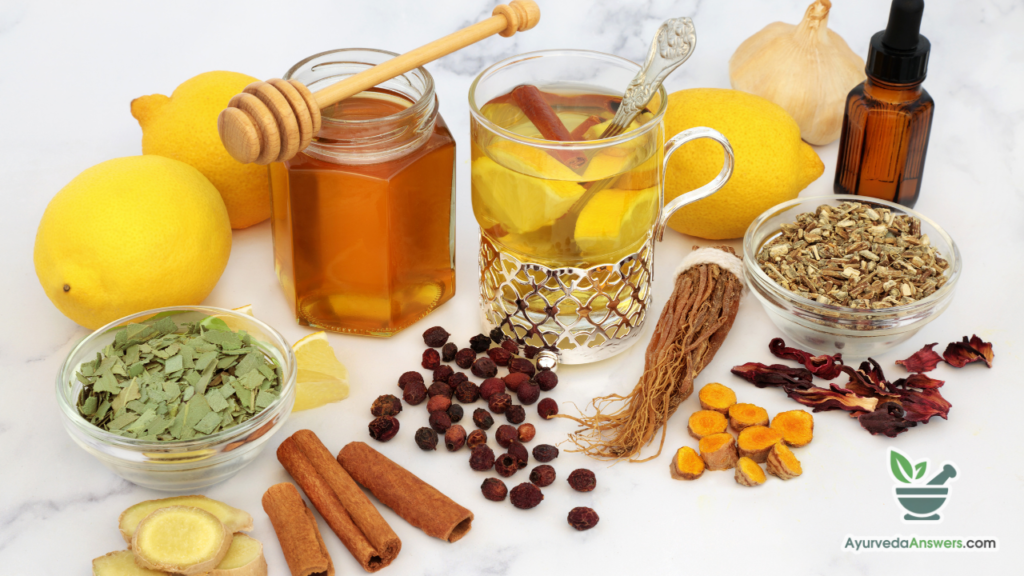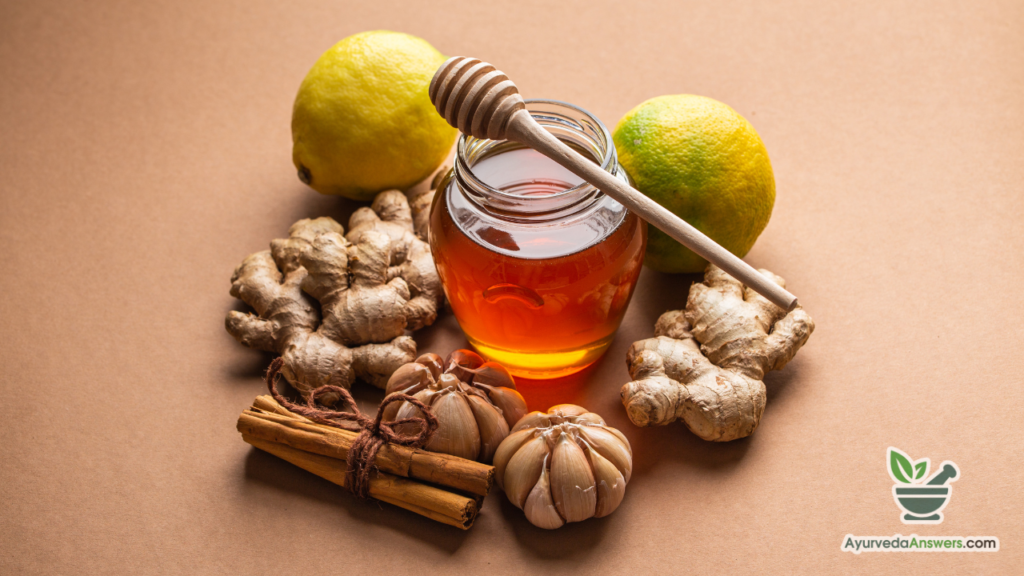
In Ayurveda, Kapha is one of three doshas or mind-body constitutions. Representing the earth and water elements, Kapha governs structure, strength and fluid balance in the body.
Kapha types tend to be sturdy, calm and affectionate when in balance. But excessive Kapha can lead to lethargy, weight gain and resistance to change. Bringing Kapha back into balance restores energy and vitality. 👍
The Origins and Qualities of Kapha Dosha
Kapha derives from “shleshaka kapha” meaning that which supports the body. It is the energy that forms the body’s structures, including bones, muscles, tendons and lubricating fluids. 🦴
Kapha types have solid, heavier builds and calm dispositions. 😌 Mentally, they are methodical, loyal and loving when in balance. But too much Kapha causes rigidity, attachment, depression and weight gain. 🙍♂️
Signs of excessive Kapha in the body include:

Lethargy, fatigue, heavy feeling 😪
– Weight gain, water retention, puffiness 🎈
– Sinus congestion, stuffy nose 🤧
– Depression, sadness, melancholy 😔
– Stubbornness, resistance to change 🙅♂️
– Oily skin, cystic acne, congestion 😣
Catching Kapha imbalance early by noticing the signs allows us to gently restore balance. 👍
Signs Your Kapha is Out of Balance
Pay attention to your body for clues that Kapha dosha is starting to go off track. Signs include:

– Feeling heavy, lethargic, sleepy during day 😪
– Gaining excess weight, especially on thighs and hips 🍑
– Fluid retention, swelling under eyes or feet 💧
– Waking up groggy and congested, thick mucus 🤧
– Melancholy, attachment, stuck on thoughts of past 😞
– Sluggish digestion, loose stools 💩
– Skin feels oily, development of cystic acne 😣
When you notice these cues, it’s time to stimulate and energize sluggish Kapha. ⚡
Tips for Invigorating and Lightening Kapha
Make stimulating adjustments to your daily routine when Kapha is in excess:
– Wake before 6am and get moving to kindle agni 🔥
– Take brisk walks and dynamic exercise daily 🚶♀️
– Favor light, dry, warm, spicy Kapha-reducing foods 🌶️
– Stay engaged, avoid naps and lounging excessively 🙅♂️
– Meditate on change; reflect on desires for future 🧘♀️
– Take hot baths, use eucalyptus oil to clear congestion 🛁
– Engage socially, make new connections to avoid isolation 🗣️
– Get out in nature, expose yourself to wind and sun 🌬️
– Plan exciting adventures and projects to move stagnation ✈️
When you feel heavy and sluggish, it’s time to get moving and stimulate Kapha! 💪
Food Guidelines for Balancing Kapha

To balance heavy, damp Kapha dosha:
– Favor dry foods – toast, crackers, dry cereal 🥨
– Drink plenty of warm water through the day 🥤
– Reduce cold, heavy foods – ice cream, cheese 🍦
– Avoid creamy sauces, sweeteners, fats 🧈
– Season food with spicy herbs – garlic, ginger, turmeric 🌶️
– Enjoy fruits, veggies with bitter and astringent tastes 🍋
– Drink herbal teas – cinnamon, ginger, fenugreek 🍵
– Avoid napping after meals, stay active 🚫
Proper diet is critical in balancing Kapha dosha. 🍽️
Herbs and Supplements to Lighten Kapha

Some Ayurvedic herbs can help energize and invigorate sluggish Kapha:
– Gugglu detoxifies lymphatics, melts stagnation 💊
– Tulsi tea mobilizes lungs, boosts energy 🍵
– Guggulu and garcinia support weight loss efforts 🍃
– Triphala gently stimulates bowels 🚽
– Pippali ginger tea kindles agni, digestion 🔥
– Guduchi energizes the liver and immune system 🫀
Consult an Ayurvedic practitioner for herbal formulations tailored to your specific Kapha symptoms. 👩⚕️
Stimulating Yoga Poses and Exercises
The following stimulating yoga poses help combat heavy, lethargic Kapha:

– Sun salutes – build heat, reduce heaviness 🧘♀️
– Backbends – open chest and lungs 🤸♀️
– Twists – massage and stimulate organs 🌀
– Inverted poses – refresh and energize mind 🤸♀️
– Jumpbacks/vinyasas – boost circulation 🏃♀️
– Surya namaskar – build heat and energy 🔥
Focus on movement and sequences that are invigorating and Kapha-reducing. 🧘♀️
Kapha-Reducing Essential Oils
Aromatherapy uses essential oils to rebalance the doshas. Beneficial oils for Kapha include:
– Eucalyptus clears congestion, boosts respiration 👃
– Juniper berry helps flush excess fluids and toxins 🍇
– Peppermint stimulates the mind, boosts energy 🧠
– Clove improves circulation and digestion 🌡️
– Tea tree fights inflammation and bacterial overgrowth 🦠
Inhale oils directly, diffuse them at home or dilute in a carrier oil for massage. 💆♂️
Home Remedies for Kapha Imbalance
Whip up stimulating home remedies with ingredients from your kitchen:

– Honey lemon ginger tea to kindle agni first thing 🔥
– Cinnamon roast dandelion root tea to reduce water retention 🍵
– Papaya seed powder digestive stimulant before meals 🥄
– Apple cider vinegar well diluted in water for circulation 🥤
– Licorice and peppermint tea for mucus reduction 🍃
Simple home measures can help balance sluggish Kapha on the spot. 👍
Creating Balance Through Consistent Routines
A stable daily routine provides the structure Kapha types need, while also preventing inertia. Try this schedule:
- Morning – Rise before 6am. Scrape the tongue. Drink hot water. Stimulating yoga flows. Robust breakfast before 8am. 🕰️
- Afternoon – Light lunch at noon. Walk after eating. Early dinner, no snacking later. 🚶♀️
- Evening – Early to bed, ideally 9:30pm. Calming bedtime routine. 🛏️
- Overall – Eat at routine times. Stay active, avoid lounging. Take on new projects. Socialize often. Expose yourself to nature’s elements. 🌄
When you feel heavy and bogged down, stimulate Kapha with activity. Stick with routines for balance and energy. With Ayurveda’s wisdom, you’ll feel more invigorated and dynamic. 💪
Conclusion
Kapha dosha represents the earth and water elements in Ayurveda. When in balance, Kapha individuals are calm, steady and affectionate. But excess Kapha can lead to lethargy, weight gain, and resistance to change.
Waking early, exercising vigorously, eating light and dry foods, staying socially engaged, and avoiding naps and lounging are all important. Herbal supplements, essential oils, yoga poses and home remedies also help invigorate and balance Kapha.
Following Ayurvedic wisdom, Kapha types can restore their natural energy and vitality. Building regular routines with plenty of movement provides the structure Kapha thrives on. Periodically assessing your state of balance and making adjustments as needed keeps Kapha in check. With a few daily stimulants and consistent healthy rhythms, you’ll maintain optimal health, energy and balance.
Disclaimer : The ancient healing techniques described in these articles are not intended as substitutes for professional medical advice or treatment. Consult a physician before trying any new health treatment. Do not stop or change prescribed medications without consulting your healthcare provider. The information provided is for educational purposes only. Results will vary based on individual factors. Always rely on the guidance of a qualified medical professional for any health concerns.
Read Our Latest Articles
- Ayurveda for Disc Bulge: Finding Relief Naturally
- Ayurveda for Alopecia Areata: Nurturing Hair Health Naturally
- Ayurveda for Asthma: Breathe Easy with Natural Solutions
- Ayurveda for Melasma: Embracing Natural Solutions for Clear, Radiant Skin
- Ayurveda for Dampness in the Body: Embracing Balance and Vitality
Leave a Reply